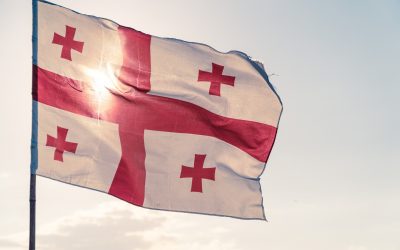Public Participation
Public participation in decision-making is increasingly recognized as a human right in and of itself. Communities have the right to express their opinions and concerns about business projects, particularly if those projects could have adverse human rights impacts. Additionally, some investors require businesses to hold consultations with local communities before starting a project.
The ‘social license to operate’ refers to the idea that organizations need a basic level of acceptance from the local community and other stakeholders; without it, businesses risk blockades, legal battles, and opposition campaigns. Public participation can be critically important for gaining and maintaining the social license to operate.
Furthermore, public participation and stakeholder engagement are crucial for identifying, preventing, addressing, and remedying human rights impacts related to business activities. As such, it is at the heart of human rights due diligence.
The Aarhus Convention recognizes the rights to public participation, access to information, and access to justice in environmental matters. The European Union approved the Aarhus Convention in 2005. Other signatories include:
| Country |
| Albania |
| Armenia |
| Azerbaijan |
| Belarus |
| Bosnia and Herzegovina |
| Bulgaria |
| Croatia |
| Czechia |
| Estonia |
| Georgia |
| Hungary |
| Kazakhstan |
| Kyrgyzstan |
| Latvia |
| Lithuania |
| Montenegro |
| North Macedonia |
| Poland |
| Moldova |
| Romania |
| Serbia |
| Slovakia |
| Slovenia |
| Tajikistan |
| Turkmenistan |
| Ukraine |
Grievance Mechanisms
An operational-level grievance mechanism is a process for impacted rights-holders — such as community members and workers — to notify a company about adverse human rights impacts and other complaints. According to the UN Guiding Principles, “To make it possible for grievances to be addressed early and remediated directly, business enterprises should establish or participate in effective operational-level grievance mechanisms for individuals and communities who may be adversely impacted.” Through grievance mechanisms, companies should take steps to address complaints in a timely manner, in order to prevent harms from compounding and grievances from escalating. Businesses can also use grievance mechanisms to identify systemic problems and adapt their practices accordingly.
Grievance mechanisms can be an important component of access to remedy; they can also inform human rights due diligence processes.
According to the UN Guiding Principles, grievance mechanisms should be:
- Legitimate: enabling trust from the stakeholder groups for whose use they are intended, and being accountable for the fair conduct of grievance processes
- Accessible: being known to all stakeholder groups for whose use they are intended, and providing adequate assistance for those who may face particular barriers to access
- Predictable: providing a clear and known procedure with an indicative time frame for each stage, and clarity on the types of process and outcome available and means of monitoring implementation
- Equitable: seeking to ensure that aggrieved parties have reasonable access to sources of information, advice and expertise necessary to engage in a grievance process on fair, informed and respectful terms
- Transparent: keeping parties to a grievance informed about its progress, and providing sufficient information about the mechanism’s performance to build confidence in its effectiveness and meet any public interest at stake
- Rights-compatible: ensuring that outcomes and remedies accord with internationally recognized human rights
- A source of continuous learning: drawing on relevant measures to identify lessons for improving the mechanism and preventing future grievances and harms
- Based on engagement and dialogue: consulting the stakeholder groups for whose use they are intended on their design and performance, and focusing on dialogue as the means to address and resolve grievances







